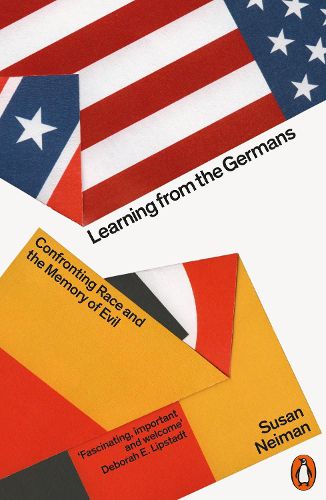Readings Newsletter
Become a Readings Member to make your shopping experience even easier.
Sign in or sign up for free!
You’re not far away from qualifying for FREE standard shipping within Australia
You’ve qualified for FREE standard shipping within Australia
The cart is loading…






As the western world struggles with legacies of racism and colonialism, Susan Neiman asks what we can learn from the Germans about confronting the evils of the past
What can we learn from the past in order to move forward?
Susan Neiman’s Learning from the Germans delivers an urgently needed perspective on how a country can come to terms with its historical wrongdoings. Neiman, who grew up as a white girl in the American South during the civil rights movement, is a Jewish woman who has spent much of her adult life in Berlin. In clear and gripping prose, she uses this unique perspective to combine philosophical reflection, personal history and conversations with both Americans and Germans who are grappling with the evils of their own national histories.
Through focusing on the particularities of those histories, she provides examples for other nations, whether they are facing resurgent nationalism, ongoing debates over reparations or controversies surrounding historical monuments and the contested memories they evoke. It is necessary reading for all those confronting their own troubled pasts.
$9.00 standard shipping within Australia
FREE standard shipping within Australia for orders over $100.00
Express & International shipping calculated at checkout
Stock availability can be subject to change without notice. We recommend calling the shop or contacting our online team to check availability of low stock items. Please see our Shopping Online page for more details.
As the western world struggles with legacies of racism and colonialism, Susan Neiman asks what we can learn from the Germans about confronting the evils of the past
What can we learn from the past in order to move forward?
Susan Neiman’s Learning from the Germans delivers an urgently needed perspective on how a country can come to terms with its historical wrongdoings. Neiman, who grew up as a white girl in the American South during the civil rights movement, is a Jewish woman who has spent much of her adult life in Berlin. In clear and gripping prose, she uses this unique perspective to combine philosophical reflection, personal history and conversations with both Americans and Germans who are grappling with the evils of their own national histories.
Through focusing on the particularities of those histories, she provides examples for other nations, whether they are facing resurgent nationalism, ongoing debates over reparations or controversies surrounding historical monuments and the contested memories they evoke. It is necessary reading for all those confronting their own troubled pasts.